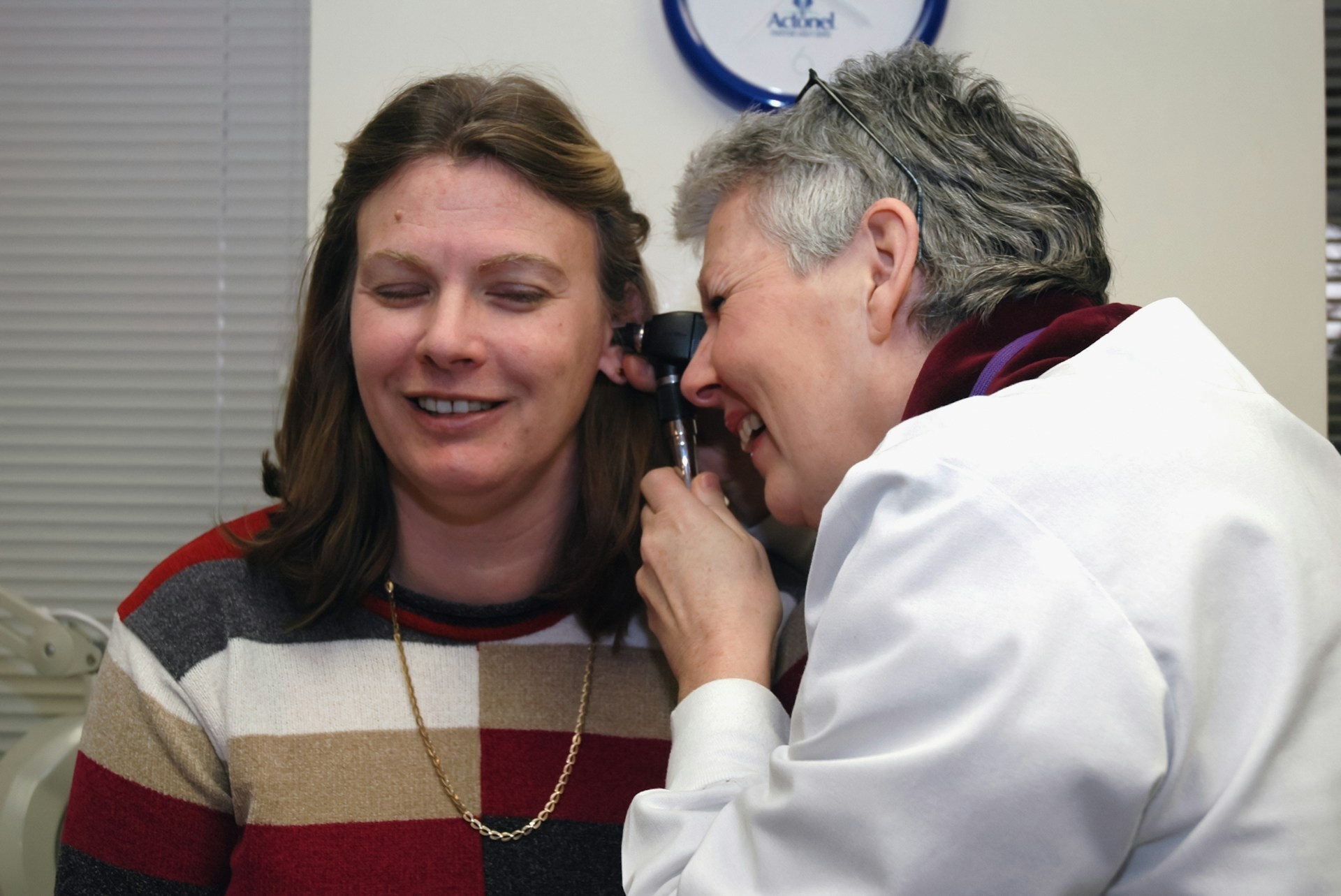Can a Hearing Aid Help with Tinnitus?
- Posted on
- By Hoorbatterijen

Tinnitus is an annoying and sometimes exhausting experience, where constantly perceiving sounds without an external source significantly impacts the quality of life. In this blog, we will delve into the causes of tinnitus, the available treatment options, and how to effectively manage this often elusive condition.
Causes of Tinnitus
Tinnitus, also known as ringing in the ears, has various causes:
- Exposure to Loud Noises: Prolonged exposure to intense sounds, such as those at concerts, clubs, or noisy machinery at the workplace, leads to damage to the cells in the inner ear. This damage causes noise in the ear, with the nervous system sending abnormal signals to the brain, resulting in the perception of sounds when there is no actual external sound source.
- Age-Related Hearing Loss: As people age, the nerve fibers in the inner ear gradually decrease. This age-related hearing loss, also known as presbycusis, is a cause of tinnitus. The reduction of nerve fibers and other changes in the structure of the inner ear alter sound perception and lead to experiencing ringing in the ears.
- Ear Infections: Infections in the ear, such as middle ear infections (otitis media), sometimes cause temporary ringing in the ears due to inflammation and fluid buildup in the ear. This form of tinnitus often disappears once the infection is treated, but in some cases, it remains a long-term issue.
- Medications: Certain medications, such as some antibiotics (e.g., aminoglycosides), chemotherapy drugs, and high doses of aspirin, can cause tinnitus as a side effect. This varies from a temporary effect to a long-term issue, depending on the duration and dosage of the medication.
- Conditions: Various medical conditions can be associated with tinnitus, including Ménière's disease, an inner ear disorder causing dizziness and hearing loss, and temporomandibular joint disorder (TMJ), a jaw joint disorder causing pain and dysfunction in the jaw area. Other possible causes include blood vessel problems, such as atherosclerosis, muscle contractions in the middle ear, and neurological disorders.
- Tinnitus in Stress and Anxiety: Although stress and anxiety are not direct causes of tinnitus, they can worsen the perception of tinnitus. Stress increases blood pressure and causes muscle tension, which in turn intensifies tinnitus or brings it to the forefront. Additionally, the constant presence of tinnitus itself causes stress and anxiety.
Can a Hearing Aid Help with Tinnitus?
Hearing aids are often used to correct hearing loss, but they also have a positive impact on people suffering from tinnitus. Here are some ways hearing aids help manage tinnitus:
- Amplification of Environmental Sounds: Many people with ringing ears find it difficult to perceive environmental sounds due to the constant noise of tinnitus. Hearing aids help by amplifying environmental sounds, making it easier to hear other sounds and bringing tinnitus to the background. This reduces the prominence of tinnitus and alleviates the burden of the constant noise.
- Tinnitus Masking Features: Some modern hearing aids are equipped with special features designed to mask or distract from tinnitus. These features play various sounds, such as white noise, pink noise, natural sounds like rain or babbling brooks, or customized sounds specifically tailored to the individual's needs. By masking tinnitus with pleasant sounds, these features help divert attention from the disruptive noise of tinnitus itself.
- Improvement of Quality of Life: For many people with tinnitus, the constant noise negatively impacts their overall well-being and quality of life. It leads to sleep problems, concentration issues, anxiety, and depression. Hearing aids tailored to treat tinnitus reduce the burden of the condition and help the wearer better cope with the symptoms. This leads to an improved overall quality of life and well-being.
However, it is important to note that hearing aids are not suitable for everyone with tinnitus. The success of hearing aids in countering tinnitus varies depending on factors such as the severity of tinnitus, the degree of hearing loss, and the individual's needs and preferences. Therefore, it is essential to undergo thorough research and evaluation by a qualified audiologist or ENT specialist to determine if hearing aids are a suitable treatment option for managing tinnitus.
What to Do About Tinnitus?
Dealing with tinnitus requires an approach that considers the severity of the condition and the individual's needs. The first important step is to identify and treat any underlying causes. This involves consulting an audiologist or ENT specialist to determine hearing loss or rule out medical conditions such as ear infections or Ménière's disease.
In addition to addressing underlying issues, there are various lifestyle and behavioral adjustments that help manage ringing in the ears. Wearing hearing protection in noisy environments and taking regular breaks from loud noises reduce symptoms. Stress management techniques also play a role, as stress and anxiety increase the intensity of perceived tinnitus. Meditation, deep breathing exercises, progressive muscle relaxation, and yoga all help reduce stress and have a calming effect on the nervous system.
Additionally, sound distraction is an effective strategy to divert attention from tinnitus. Listening to soothing music, playing background sounds such as a fan or a white noise machine, or using special tinnitus masking devices all help reduce the impact of tinnitus.
For some people, cognitive behavioral therapy (CBT) is a valuable addition to tinnitus treatment. CBT helps change the reaction to ringing in the ears, restructure negative beliefs, and teach effective coping strategies to reduce the negative impact of tinnitus on daily life.
It is important to note that managing tinnitus is an individual process, and what works for one person may not work for another. It is advisable to try different approaches and work with healthcare professionals to find a treatment that best suits your specific situation and needs.

